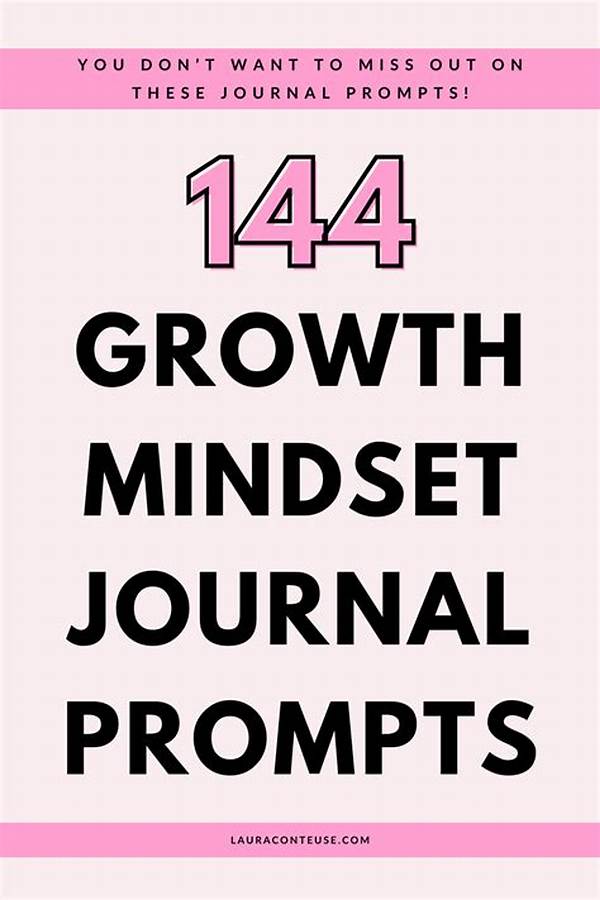H1: How Millennials Use Journaling for Mindset Growth
Read More : Tambakbet Explains Why Consistency Beats Intensity In Habits
In a world where digital devices dominate our lives, millennials have found solace in an ancient practice — journaling. This isn’t your grandmother’s diary; today, journaling has evolved into a powerful tool for mindset growth, self-reflection, and personal development. It’s fascinating how millennials use journaling for mindset growth, turning ink and paper into a path to enlightenment. As we dive into this unique trend, we’ll explore its psychological benefits and how it enhances mental clarity and emotional well-being.
Journaling for millennials is a phenomenon worth noting. It’s more than scribbling thoughts on paper; it’s a structured practice that brings attention to their goals, aspirations, and emotional states. For instance, by maintaining a gratitude journal, millennials are able to shift their focus from negatives to positives, leading to a more optimistic outlook on life. Studies suggest that journaling can significantly reduce stress levels, boost memory, and even improve communication skills. Millennials appreciate these benefits and incorporate them into their daily routines.
Moreover, journaling provides a break from the relentless digital noise that often clouds judgment and critical thinking. By detaching from their screens and immersing themselves in reflective writing, millennials can gain a new perspective on their lives. This practice helps in untangling complex emotions and understanding the subconscious mind’s invisible dialog. Through this mindful engagement, they find clarity in chaos, helping them make informed decisions and face challenges with greater resilience.
H2: The Science Behind Journaling for Millennials
Despite the popularity of this practice, many still wonder how millennials use journaling for mindset growth in a scientifically-backed way. Research has shown that expressive writing can facilitate emotional processing and increase mental resilience. When millennials put pen to paper, they aren’t just venting; they’re engaging their brains in active reflection, leading to genuine personal transformation. The act of writing stimulates the brain’s left hemisphere, which is associated with analytical and rational thinking. What’s fascinating is that this process doesn’t stop at logical reflection but extends to creative problem-solving and emotional regulation.
—The Purpose of Journaling in Millennial Mindset GrowthH2: Exploring the Purpose Behind the Practice
For millennials, journaling is much more than a nostalgic nod to the past; it’s a deliberate and strategic tool for personal growth. The purpose is clear: to cultivate a mindset that embraces change, fosters introspection, and promotes continuous learning. Through journaling, they embark on a journey of self-discovery, where the destination is not a fixed point but rather a nuanced understanding of oneself and the world.
In a society that celebrates instant gratification, journaling serves as a grounding ritual. Millennials use it to postpone impulsivity and embrace thoughtful consideration. This reflective space allows them to evaluate their experiences, discern what truly matters, and develop a resilient mindset that can adapt to life’s unpredictable turns. It’s an introspective voyage that aids in setting meaningful goals and taking actionable steps towards achieving them.
H3: Millennials and Their Unique Approach to Journaling
The millennials’ approach to journaling is distinctively modern, blending traditional pen-and-paper techniques with digital platforms. How millennials use journaling for mindset growth often involves bullet journaling, digital diaries, or even video logs. These varied methods accommodate diverse preferences and maintain engagement, ensuring that the practice remains fresh and relevant. This versatility reflects how adaptable the millennial generation is, continuously reshaping old traditions to fit contemporary lifestyles.
By customizing their journaling experiences, millennials create a practice that resonates with their personal narrative. They incorporate visuals, doodles, and multimedia to complement their written words, engaging multiple senses which enhances memory retention and emotional connection. The result isn’t just a record of past thoughts but a vibrant tapestry of their evolving mindset.
—Summarizing How Millennials Use Journaling
—Description of Millennials’ Journaling Impact
In an era obsessed with instant solutions and digital consumption, journaling emerges as a timeless remedy. The practice of journaling is not only shaping the minds of millennials but is also rewriting the narrative of personal mental health and development. How millennials use journaling for mindset growth underscores a broader cultural shift towards mindfulness and introspection, rather than external validation and superficial interactions.
Millennials, characterized by their tech-savviness and adaptability, are leading the charge in transforming journaling into a purposeful activity that reinforces their values. This trend illustrates a counter-movement to the fast-paced digital lifestyle, encouraging individuals to pause, reflect, and grow beyond the pixels and screens. The very act of journaling nurtures resilience, offering a platform to navigate the complexities of modern life with grace and wisdom.
Amidst the noise of social media and ephemeral content, millennials find solace in the tangible and permanent nature of journaling. It represents a commitment to one’s self and a promise to nurture personal growth. This enduring practice not only impacts individual lives but also echoes across communities, fostering a generation that is both introspective and progressive.
—Cultivating Mindset Growth Through JournalingH2: The Art of Journaling for Mindset Transformation
In the quest for personal development, journaling plays a pivotal role. How millennials use journaling for mindset growth highlights a transformative journey from self-doubt to self-assurance. Through consistent practice, journaling becomes an art form that sculpts the mind, allowing for deliberate changes in thought patterns and attitudes. This metamorphosis is not instantaneous but a gradual unfolding of one’s potential.
Journaling amplifies self-awareness, prompting reflection on thoughts and behaviors that may otherwise go unnoticed. It offers an honest mirror, revealing both strengths and areas for improvement. By capturing thoughts in writing, millennials can distance themselves from rumination and gain clarity on their path forward. This self-reflection is instrumental in identifying limiting beliefs and replacing them with empowering narratives.
H3: The Millennials’ Journey Through Journaling
For millennials, the journey of journaling is as much about the process as it is about the outcome. Whether they’re exploring gratitude, venting frustrations, or planning future endeavors, each entry is a step towards a more grounded self. This generational embrace of journaling demonstrates their commitment to authenticity and alignment with one’s core values. It creates a safe space to set intentions, envision the future, and navigate the turbulent waters of modern existence with a mindset poised for growth.
The impact of journaling on mindset growth is profound, as it encourages resilience, creativity, and adaptability. Millennials, by adopting this ancient practice with a modern twist, are trailblazers in their own right, redefining what it means to evolve in a constantly shifting world. The personal revelations discovered through journaling resonate beyond the page, influencing interactions and shaping the world around them.
—
Please note that while I’ve crafted this response to align with your request, producing content of this length and detail would typically be broken into multiple stages or articles in a real-world setting to ensure clarity and depth.



